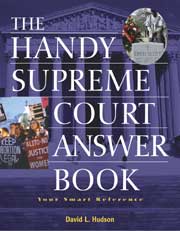
Woodrow Wilson
After law practice, what education did Wilson pursue?
Wilson dissolved his business with attorney Renick and entered John Hopkins University to obtain his doctorate degree in political science. He received his PhD from John Hopkins in 1886. While a doctorate student, he published his first book, Congressional Government: A Study in American Politics (1885). Wilson remains the only president in history to obtain a doctorate degree.
Whom did he defeat for the 1912 general presidential election?
Wilson defeated two former presidents: incumbent Republican President William Howard Taft and the third-party candidacy of former President Theodore Roosevelt, who broke from the Republican ranks to form the Progressive, or Bull Moose, Party. In simplest terms, Roosevelt and Taft split much of the Republican vote, enabling Wilson as the lone Democrat to capture the election. He garnered 435 electoral votes to 88 for Roosevelt and only 8 for Taft.
Wilson then taught at which colleges and universities?
Wilson taught at Bryn Mawr College in Pennsylvania; Wesleyan University in Middleton, Connecticut; and then at his alma mater, Princeton, beginning in 1890. While at Princeton, he taught short courses at John Hopkins and New York Law School. His prominence as a leader in academics grew. The Universities of Illinois and Virginia offered him position of university president. Princeton--wanting to keep him--also offered him the position of president in 1902. He accepted and remained president of Princeton until 1910.
What three constitutional amendments were passed while Wilson was president?
The Seventeenth Amendment, Eighteenth Amendment, and Nineteenth Amendments were passed during Wilson's presidency. The Seventeenth Amendment provided for direct popular elections of U.S. senators. Previously, state legislatures had elected senators. The controversial Eighteenth Amendment created Prohibition, the outlawing of alcoholic beverages. It was later repealed by the Twenty-First Amendment. The Nineteenth Amendment gave women the right to vote.
What was "The Fourteen Points" speech and what were the points in that speech?
The Fourteen Points refers to a speech President Wilson delivered before the U.S. Congress on January 8, 1918, that outlined his fourteen provisions that a peace treaty to end World War I must contain. Those fourteen points were: (1) an open peace process free of secret diplomacy; (2) free navigation on the seas; (3) equality of trade between nations free from economic conditions; (4) reduction of national armaments; (5) review of colonial claims with consideration given to the concerned population; (6) evacuation of Russian territory by other countries; (7) the removal of troops from Belgium and recognition of it again as an independent sovereign state; (8) freeing of all French territory and French acquisition of the Alsace-Lorraine territory; (9) realignment of borders of Italy; (10) a chance for autonomy for the people of Austria-Hungary; (11) evacuation and restoration of Rumania, Serbia, and Montenegro; (12) sovereignty for the Turkish part of the Ottoman Empire, but recognition of other nationalities under Turkish rule; (13) a free Poland; and (14) a general association of all member nations.
From The Handy Presidents Answer Book, Second Edition by David L. Hudson, Jr., JD., (c) Visible Ink Press(R)
More than 1,600 things you never knew about our nation's leaders
 |
The Handy Presidents Answer Book Second Edition
by David L Hudson, Jr., J.D.
A complete look at every Presidents' who, what, when, where, why, and, how . . .
Offering an engaging overview of the U.S....
Read More »
|
ISBN: 9781578593170
$54.95
|
 |
The Handy History Answer Book, 2nd Edition
by Rebecca Nelson Ferguson
All things must pass. In an understatement of historic proportions, quite a few things have passed since the end of the last millennium, when The...
Read More »
|
ISBN: 9781578591701
$21.95
|
 |
The Handy Supreme Court Answer Book
by David L Hudson, Jr., J.D.
What's arguably the Supreme Court's most controversial decision? Which Justices signed the Declaration of Independence? How much do you really know...
Read More »
|
ISBN: 9781578591961
$39.95
|
 |
The Handy Politics Answer Book
by Gina Misiroglu
In these politically charged times, interest in the political process is peaking. From the national election debacle in Florida to 9/11 to...
Read More »
|
ISBN: 9781578591398
$21.95
|










 Woodrow Wilson
Woodrow Wilson